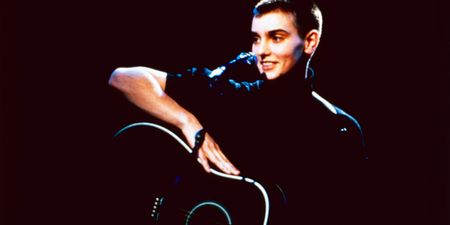By now we’re all pretty familiar with TED Talks and the TEDx Program. TED, a non-profit organisation began back in 1984 as a conference where tech, entertainment and design merged.
Today it covers almost every topic in popular culture from science to business to global issues in 18 minute speeches.
TEDx are independently run events that help share ideas in communities across the globe. There have been an incredible 1,800 TED Talks that have been watched more than 2.5 billion times.
And here are 15 of the must-see TED Talks from the past decade to entertain, educate and inspire you.
1. Edward Snowden- Here’s How We Take Back The Internet
Appearing by telepresence robot, Edward Snowden spoke at TED2014 about surveillance and Internet freedom. The right to data privacy, he suggests, is not a partisan issue, but requires a fundamental rethink of the role of the internet in our lives- and the laws that protect it. “Your rights matter,” he say, “because you never know when you’re going to need them.”
2. Sir Ken Robinson- Do Schools Kill Creativity?
Sir Ken Robinson makes an entertaining and profoundly moving case for creating an education system that nurtures (rather than undermines) creativity.
3. Sheryl Sandberg- Why We Have Too Few Women Leaders
Facebook COO Sheryl Sandberg looks at why a smaller percentage of women than men reach the top of their professions- and offers 3 powerful pieces of advice to women aiming for the C-suite.
4. Susan Cain- The Power Of Introverts
In a culture where being social and outgoing are prized above all else, it can be difficult, even shameful, to be an introvert. But, as Susan Cain argues in this passionate talk, introverts bring extraordinary talents and abilities to the world, and should be encouraged and celebrated.
5. Bill and Melinda Gates- Why Giving Away Our Wealth Has Been The Most Satisfying Thing We’ve Done
In 1993, Bill and Melinda Gates, then engaged took a walk on a beach in Zanzibar, and made a bold decision on how they would make sure that their wealth from Microsoft went back into society. In a conversation with Chris Anderson, the couple talks about their work at the Bill & Melinda Gates Foundation, as well as about their marriage, their children, their failures and the satisfaction of giving most of their wealth away.
6. Elizabeth Gilbert- Your Elusive Creative Genius
“Eat, Pray, Love” author Elizabeth Gilbert muses on the impossible things we expect from artists and geniuses and shares the radical idea that, instead of the rare person “being” a genius, all of us “have” a genius. It’s a funny, personal and surprisingly moving talk.
7. Jamie Oliver’s TED Prize Wish- Teach Every Child About Food
Jamie Oliver is transforming the way we feed ourselves, and our children. Jamie Oliver has been drawn to the kitchen since he was a child working in his father’s pub-restaurant. He showed not only a precocious culinary talent but also a passion for creating (and talking about) fresh, honest, delicious food. In the past decade, the shaggy-haired “Naked Chef” of late-’90s BBC2 has built a worldwide media conglomerate of TV shows, books, cookware and magazines, all based on a formula of simple, unpretentious food that invites everyone to get busy in the kitchen. And as much as his cooking is generous, so is his business model- his Fifteen Foundation, for instance, trains young chefs from challenged backgrounds to run four of his restaurants.
Now, Oliver is uses his fame and charm to bring attention to the changes that Brits and Americans need to make in their lifestyles and diet. Campaigns such as Jamie’s School Dinner, Ministry of Food and Food Revolution USA combine Oliver’s culinary tools, cookbooks and television, with serious activism and community organising to create change on both the individual and governmental level.
8. Pamela Meyer- How To Spot A Liar
On any given day we’re lied to from 10 to 200 times, and the clues to detect those lie can be subtle and counter-intuitive. Pamela Meyer, author of Liespotting, shows the manners and “hotspots” used by those trained to recognise deception and she argues honesty is a value worth preserving.
9. Steve Jobs- How To Live Before You Die
At his Stanford University commencement speech, Steve Jobs, CEO and co-founder of Apple and Pixar, urges us to pursue our dreams and see the opportunities in life’s setbacks- including death itself.
10. Daniel Kahneman- The Riddle Of Experience -V- Memory
Using examples from vacations to colonoscopies, Nobel laureate and founder of behavioural economics Daniel Kahneman reveals how our “experiencing selves” and our “remembering selves” perceive happiness differently. This new insight has profound implications for economics, public policy and our own self-awareness.
11. Elon Musk- The Mind Behind Tesla, SpaceX & SolarCity
Entrepreneur Elon Musk is a man with many plans. The founder of PayPal, Tesla Motors and SpaceX sits down with TED curator Chris Anderson to share details about his visionary projects, which include a mass-marketed electric car, a solar energy leasing company and a fully reusable rocket.
12. Mary Roach- 10 Things You Didn’t Know About Orgasm
Bonk author Mary Roach delves into obscure scientific research, some of it centuries old, to make 10 surprising claims about sexual climax, ranging from the bizarre to the hilarious.
13. Graham Hill- Less Stuff More Happiness
Writer and designer Graham Hill asks: Can having less stuff, in less room, lead to more happiness? He makes the case for taking up less space, and lays out three rules for editing your life.
14. Amy Cuddy- Your Body Language Shapes Who You Are
Body language affects how others see us, but it may also change how we see ourselves. Social psychologist Amy Cuddy shows how “power posing” standing in a posture of confidence, even when we don’t feel confident can affect testosterone and cortisol levels in the brain, and might even have an impact on our chances for success.
15. Keith Barry- Brain Magic
First, Keith Barry shows us how our brains can fool our bodies- in a trick that works via podcast too. Then he involves the audience in some jaw-dropping (and even a bit dangerous) feats of brain magic.
READ NEXT: 11 Of The Most Beautiful Spots To Watch The Sunset In Ireland
Topics:
RELATED ARTICLES
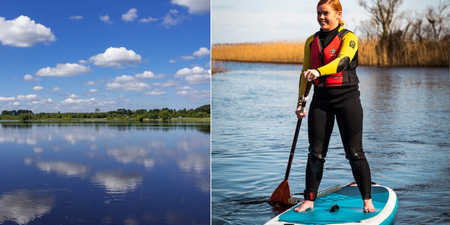





MORE FROM Lovin
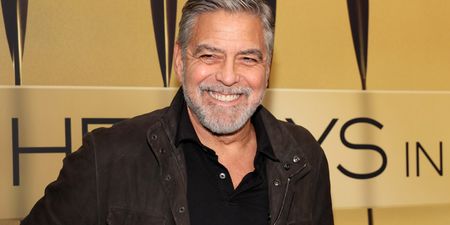



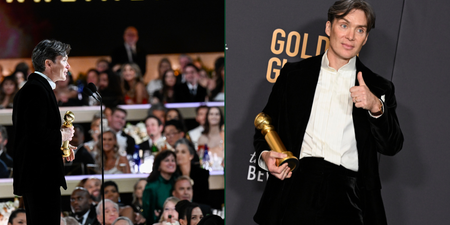



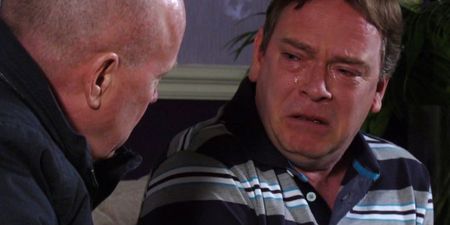



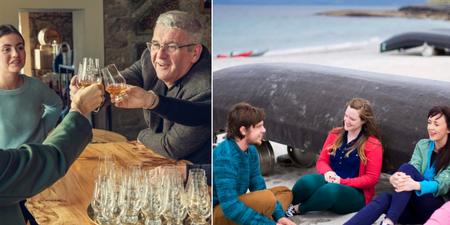






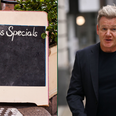




MORE FROM Lovin
